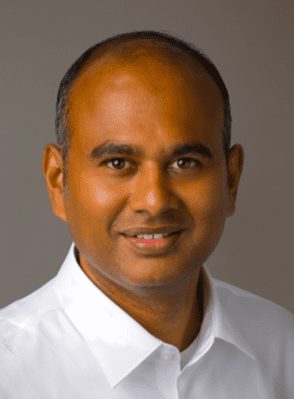
The finalists for WashingtonExec’s Pinnacle Awards were announced Oct. 13, and we’ll be highlighting some of them until the event takes place virtually Dec. 8.
Next is Cloud Executive of the Year finalist Vishwas Lele, who’s chief technology officer and Microsoft regional director at Applied Information Sciences. Here, he talks proud career moments, how he helps shape the next generation of government leaders/industry leaders, what he’s learned from failure and more.
What key achievements did you have in 2020/2021?
IT is a team sport, and my achievements are AIS’ achievements. And our most significant accomplishment in 2021 was helping large enterprises in the private and public sector move to the cloud. These organizations have very complex setups.
We often hear about new cloud services that are easy to get started and can be spun up in minutes. Still, it is really hard for large enterprises to move to the cloud because of the hybrid nature, variability in workloads, and skillsets of their teams, as they may be focused on a more traditional data center model.
Applying best practices for change management and moving these organizations to the cloud to create a path to innovation, and doing this repeatedly across organizations, has been a key achievement for our team. And of course, this capability was built on over a decade of experience working in cloud technologies.
What has made you successful in your current role?
A broad understanding of technologies — whether that is data, infrastructure, or low code — and being able to connect value proposition to business outcomes and value streams. Things are changing very rapidly, so being able to drill down to understand the depth and breadth of technology, understand a particular nuance, and relate it to a business problem, goal or desired outcome has been key to success.
What are you most proud of having been a part of in your current organization?
I am most proud of my organization in that we have been able to achieve so much as a company of our size, nearly 800. We’ve been able to reinvent ourselves every few years with the changing technology cycles and needs.
We are constantly under pressure from large system integrators who have significant scale and can commoditize a particular technology. We need to be on the constant lookout and not be disrupted by that, to keep the focus on the things that matter and can impact building a better future for our people and our customers.
What are your primary focuses going forward, and why are those so important to the future of the nation?
The primary focus is thinking beyond the foundational IT areas like storage, compute, networking — of course, these are important — is how can we take the latest innovations and apply them to help organizations we serve accomplish their core objectives. We are going beyond tackling tasks to build software solutions that can help our customers achieve their mission objectives.
These are the things that are important to our company, and if we do them well, they will positively impact our nation’s future.
How do you help shape the next generation of government leaders/industry leaders?
This is a question that is near and dear to my heart. A few years ago, Karina Homme of Microsoft and I co-founded the Azure Government Meetup. It was designed to empower government leaders to innovate. We wanted to create an environment where leaders in government could come in and discuss the challenges they faced or talk about their successes, sharing their learnings with others. I’m so glad to see that so many of them have taken the opportunity to come to speak in this forum and help shape this community.
What’s one key thing you learned from a failure you had?
There are lots of lessons we get from our failures. If we lived in a world where we did not celebrate failures, it would be a problem. In this case, nobody would be experimenting, innovating and stretching themselves to build what’s next.
If I had to pick one, working on a particularly challenging project — where things may not have been going as well as we would have liked — I have learned that working a little bit harder, going the extra step and communication, not just to the people you report to but also your team members, can go a long way.
Having a realistic understanding of the ground reality and working on the risks are all so important. Failures will happen. Being realistic about our chances, looking at the risks and communicating them can lower the impact of failures.
What’s your best career advice for those who want to follow in your footsteps?
Believe in continuous learning. No matter what project you are on, find just a few hours every week. Take a step back, think about a problem and broaden your skillset. If you spend a couple of hours every weekend thinking about a problem, reading about how people are solving that problem, nobody is going to give you a pat on the back.
Still, if you consistently do this over time, you will enhance your career, the outcomes of your customers and the organization you’re working for.

